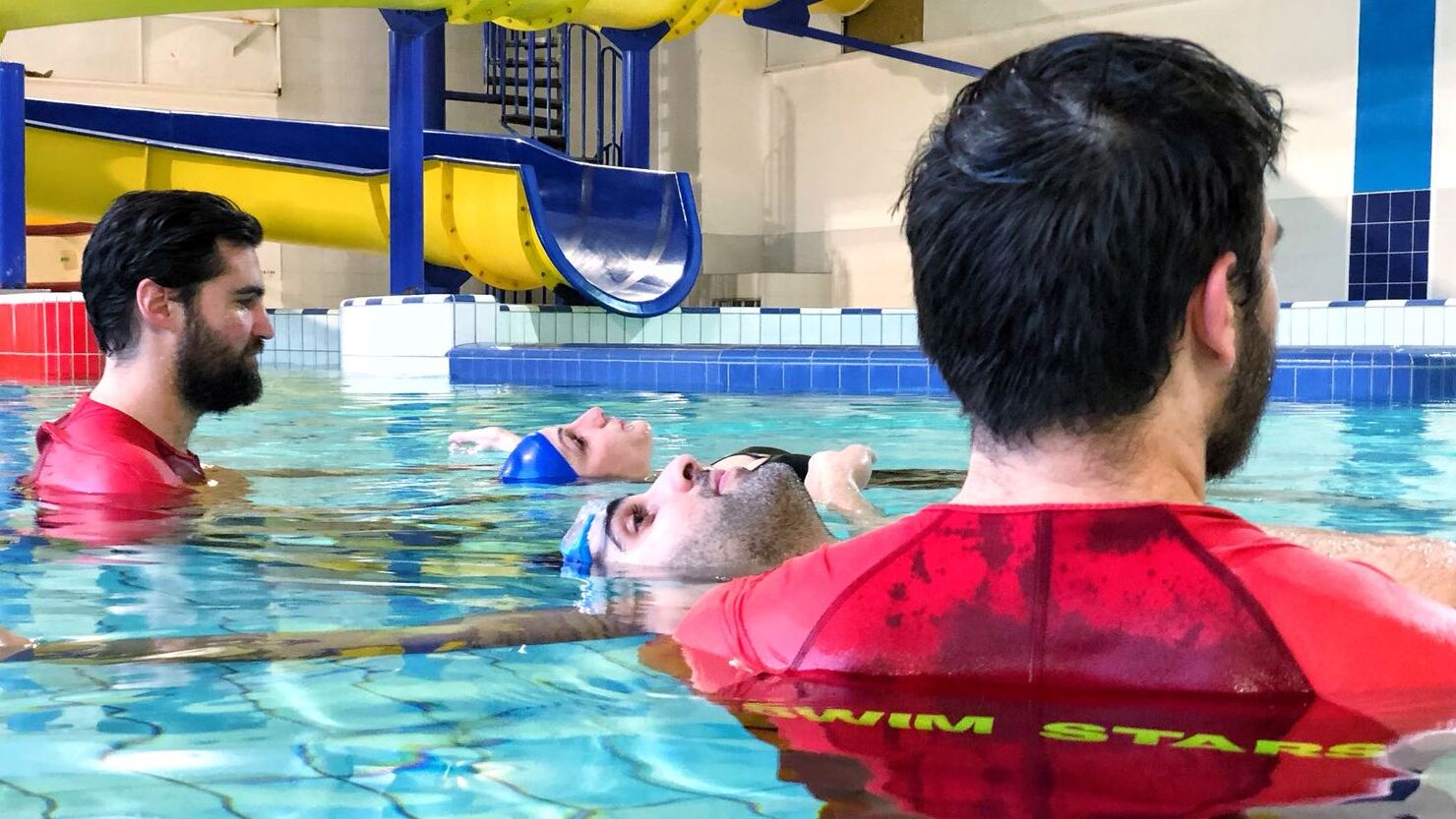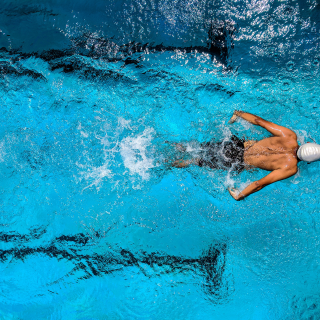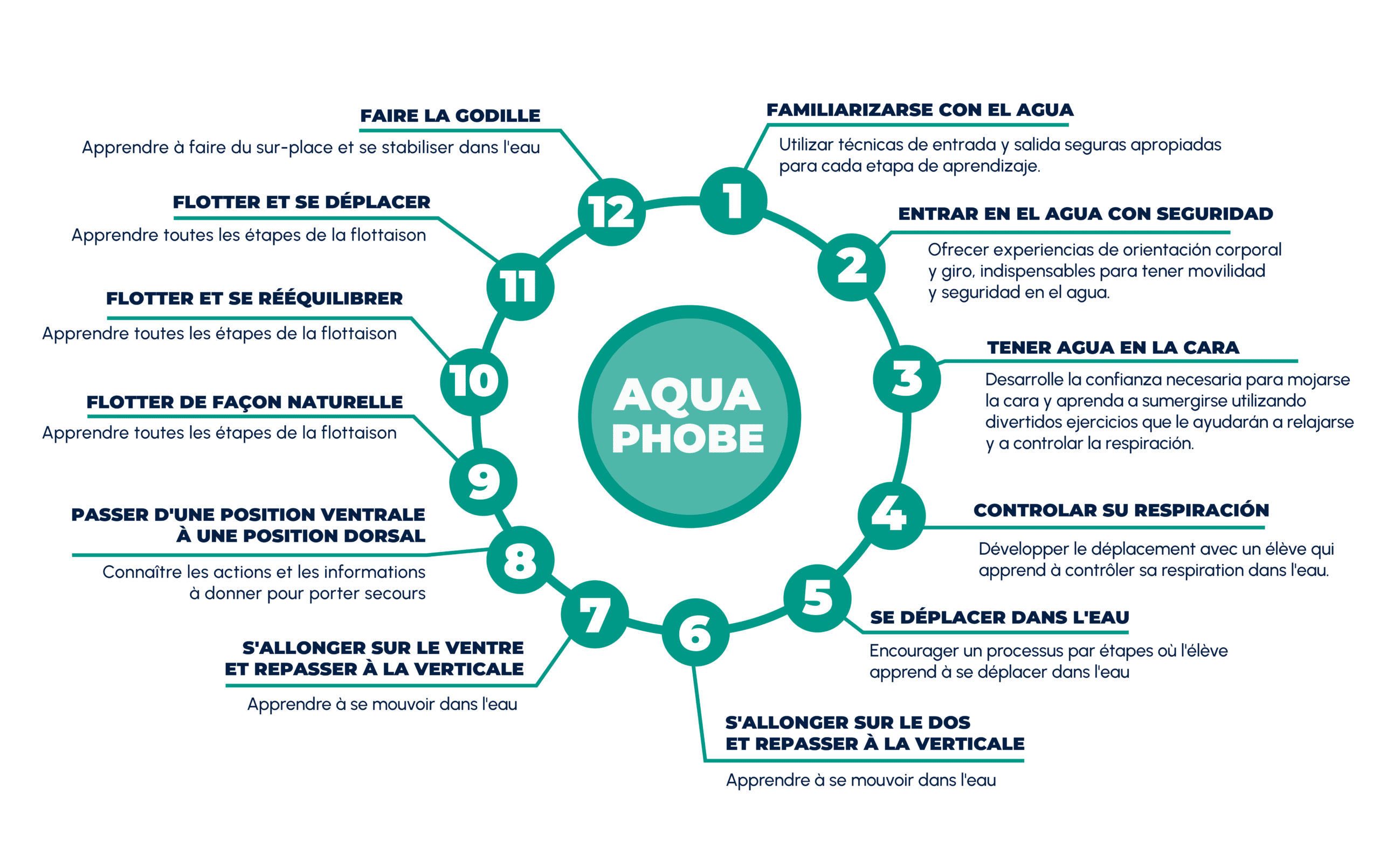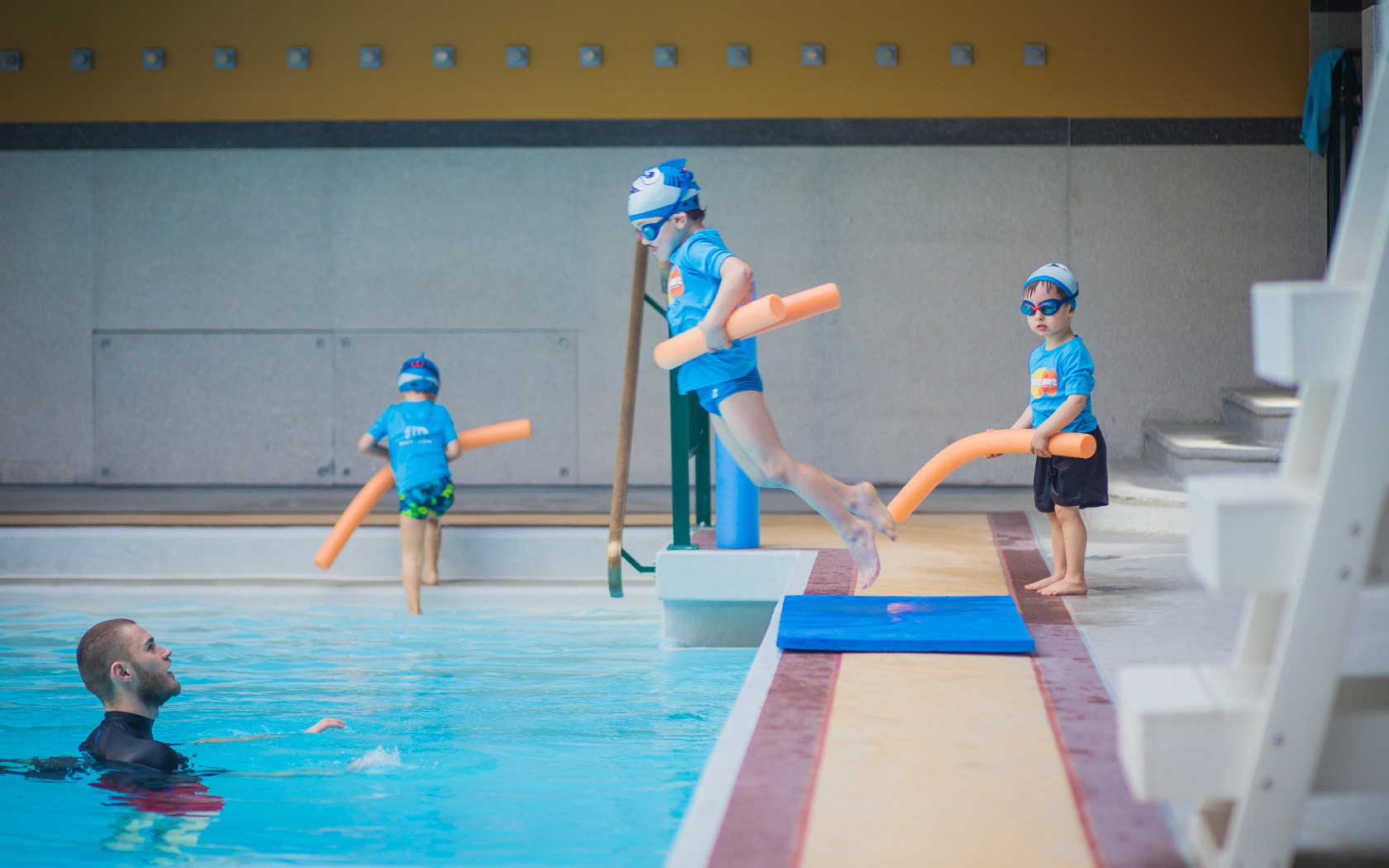Why am I afraid of water?
Aquaphobia is an intense, irrational fear of water that can range from simple apprehension to total panic. People with aquaphobia may feel a strong anxiety or panic fear of water, even when it’s shallow or calm. This is a real source of anxiety for these people.
Examples: fear of the water itself, fear of drowning and therefore dying, fear of diving or falling into the water, fear of depth and being drawn to the bottom, fear of getting water in the eyes, ears or head underwater…
Like many phobias, it can affect personal and professional life choices, as well as relationships with friends and family.
That’s why Swim Stars has developed a special program for adults with aquaphobia.
Où prendre des cours ?









